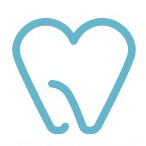The Importance of Dental Cleaning and FAQs
What is on the teeth?
Dental plaque is a layer of bacterial biofilm, which is the main culprit for dental diseases. Dental calculus is a milky white substance that turns dark brown over time. If these bacteria and calculus are not removed in time, they can lead to periodontal disease, tooth decay, and bad breath.
What is the principle of teeth cleaning?
Teeth cleaning uses high-frequency, high-energy vibrations generated by ultrasound to remove dental calculus and stains from the surface of the teeth. The broken calculus and plaque are then flushed away with water mist. Teeth cleaning needs to be accompanied by manual cleaning and polishing. If the dentist performs the procedure correctly and gently, it is generally painless.
Will teeth cleaning really make the gaps between teeth larger?
Teeth cleaning can remove dental calculus and reduce gum swelling and filling. Therefore, it may appear that the gaps between teeth have become larger. In fact, if teeth cleaning is not performed, dental calculus can cause periodontal disease, which can result in larger gaps between teeth.
What are some misconceptions about teeth cleaning?
-
Teeth cleaning does not whiten the teeth, but it can restore the natural brightness and smoothness of the teeth.
-
Tooth cleaning does not cause tooth sensitivity, but it may expose the teeth to an unfamiliar environment, making them more sensitive to irritants. Avoiding stimulating foods for a week will gradually restore the teeth.
-
Tooth cleaning does not harm the teeth and enamel, but not cleaning the teeth can leave them in a more dangerous state, such as periodontitis.
How to protect your teeth?
-
Choose a professional and reputable toothbrush, and replace it every two months; toothpaste can be mixed from multiple brands and varieties.
-
Master the correct brushing method, brush your teeth at least twice a day, using the Bass brushing technique.
-
Use dental floss, interdental brushes, and water flossers to clean the gaps between your teeth, as bacteria tend to accumulate in these areas.
-
For issues such as periodontal disease, mouthwash can help relieve mild gum redness and bleeding.
Regular dental cleanings and daily oral hygiene maintenance are very important. Gum bleeding may be a sign of gingivitis, and if not cleaned in a timely manner, it can develop into irreversible periodontitis and trigger other diseases. To protect dental health, regular dental cleanings are necessary.

